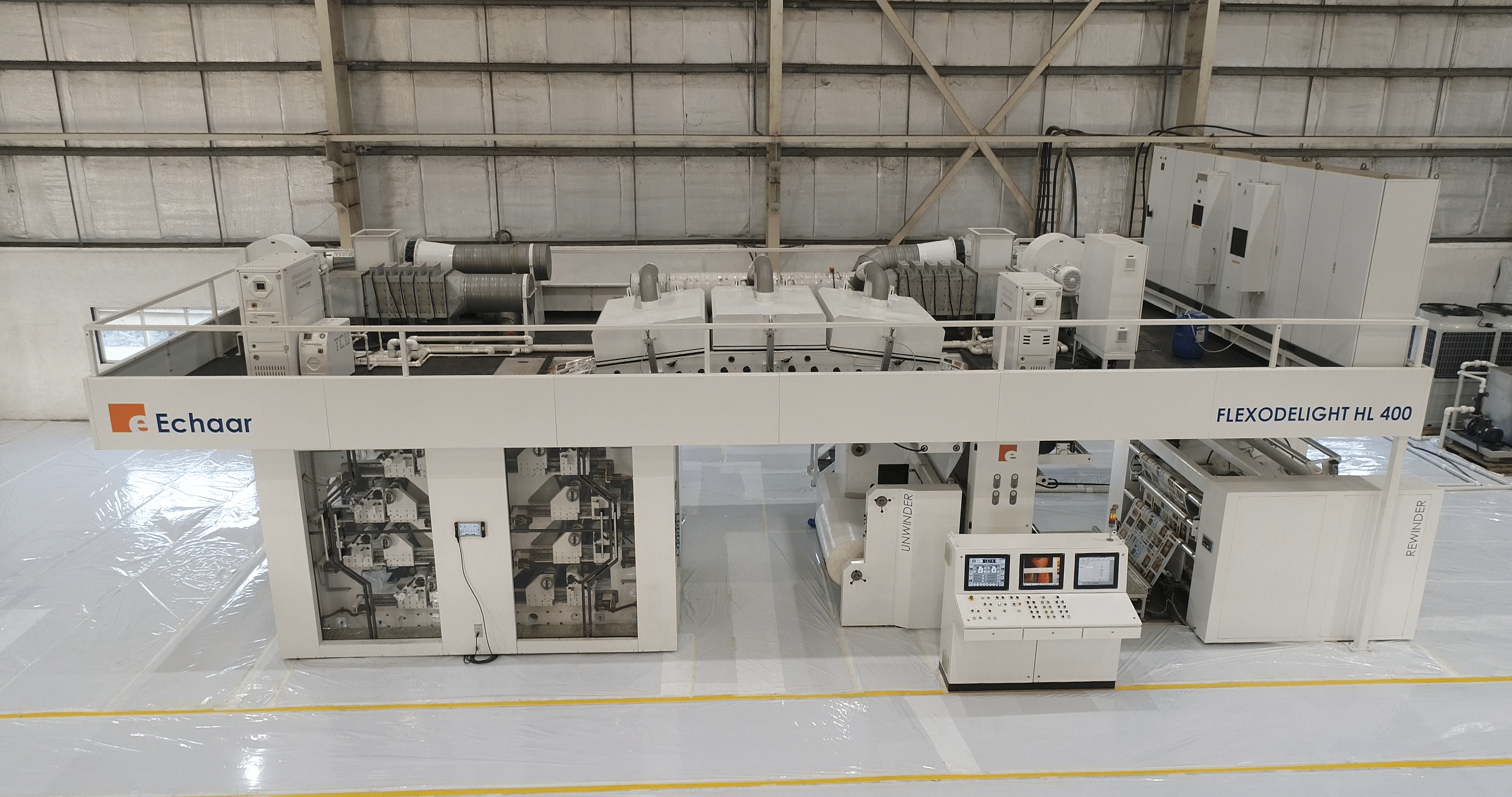Kirti Panchal: How to be hands on with the CI flexo press
Kirti Panchal, managing director at Echaar Equipments, says a good CI press needs fine aniloxes, compatible inks and most importantly an excellent pre-press
28 Jul 2023 | By Abhay Avadhani
Abhay Avadhani (AA): In the aspect of effectiveness, inventory and cost of gravure cylinders is high as compared to flexo, and the space taken by 10-15 jobs of gravure = space taken by 100 jobs of flexo. What is your take on this?
Kirti Panchal (KP): The flexo printing plates are made of polymer which is light in weight, and since these are flat-shaped, the plates can be stored easily. It stands true that the space taken to store gravure cylinders is much larger than that of flexo plates. Additionally, the manufacturing time for gravure cylinders is seven days. In terms of efficiency and usability, one flexo plate can be used for countless jobs with proper care.
AA: There are trade shops in every major city who have flexo expertise. To what extent has the trade shop benefitted the CI flexo movement in India?
KP: Indian companies are capable of picking up fast and so has been done by the CI flexo trade shops in these cities. The shops help in speeding up the CI flexo process, and in ensuring a smooth workflow.
AA: How much process control is required to get the expected performance out of the plate even though it's integrated with CI flexo?
KP: Flexo is a technology where you need to have good process control to get the expected performance. But with systematic approach and data management, one can easily achieve the process control, and get the desired output from it.
AA: How can flexo become more popular with the implementation of EPR and single-use plastics ban?
KP: Flexo is the ideal solution for sustainable flexible packaging. To achieve sustainable goals, the PE + PE, mono-component packaging is the future. Nowadays, more companies are moving towards it. CI flexo can print on LDPE substrates efficiently with low cost. I think this is the future of printing, and since the government is coming up with stricter guidelines in terms of EPR and single-use plastics ban, CI flexo is the way forward.
AA: What are the potential areas of automation in the pre-media segment? How can these be linked with flexo for better efficiency?
KP: There is a huge potential for automation in the pre-media segment, and technologies like ECG will make huge changes in the industry.
AA: How is flexo competing with gravure on things like speed to market and sustainability?
KP: As far as speed to market is concerned; when you count on the fast pre-press, fast job changeover or total cycle time right from requirements, to the packaging supply, flexo is performing way better than gravure. As environmental concerns leverage, the regulations against volatile organic compounds (VOC) emission are becoming more stringent. Flexography could use water-based inks which are minimal in solvents, environment-friendly and it contributes to green printing.
AA: Converters believe that, the finer the line screen, the better the image. In order to achieve high LPI, the press speed can be reduced, and does that not lead to a drop in efficiency?
KP: Yes, I agree that the finer the line screen, the better the image. But in order to achieve high LPI, there is no need to reduce the speed of the press. This statement does not stand true as the speed can be reduced because of many different factors. In fact higher the speed, the better is the transfer of ink, and better is the print quality. To achieve fine dots, you need to have a good machine with precise dot transfer capability and good drying. The press should also have fine aniloxes, compatible inks and most importantly an excellent pre-press.
AA: What factors make the CI flexo a better choice?
KP: A good CI flexo setup is one which has high precision and good rigidity, for which you need to use good materials. A quality heat treatment process, and good design and technology is also a must. Echaar in its flagship CI flexo model - Flexomaster can print 150 LPI and better at a speed of 500-m/minute.

The machine can print breathable films of 11 GSM, 20 micron LDPE, and a 10 micron PET at 500-m/minute
AA: How does screening impact the converters and what is the best technology out there?
KP: Screening is an important factor in print quality. As the print quality has a big impact on the business, similarly, the screening process has a big impact on converters. There are good technologies available for screening which can lead to the print quality of 150 to 300 LPI. There are many special fine dot technologies offered by plate-makers such as Vortex and Project Blue from Reproflex. VeePee Graphics also offers a good screening technology called Hybrid, Numex also offers a unique, creative technology.
Functions of the press
Echaar has three different series of gearless CI flexo presses to suit the needs of individual printers - Flexomaster HR 500/ HR 600 (with the speed of 500/600-m/minute); Flexodelight EL 300 / HL 400 (with the speed of 300/400-m/minute; and Flexosmart HR 200/HR 300 (with the speed of 200/300-m/minute). The company also manufactures stack flexo press, gearless; semi-gearless; and geared.
The machine can print breathable films of 11 GSM, 20 micron LDPE, and a 10 micron PET at 500-m/minute. It is mainly used for flexible packaging applications such as milk and oil pouches, confectionery, hygiene products like sanitary napkins, diapers, and poly and paper bags. Echaar is offering machines for a range of markets.
Flexosmart HR 300 and Flexomate are the machines which many SME companies can afford. The company follows ISO certifications, and all the compliance under the factory act.


